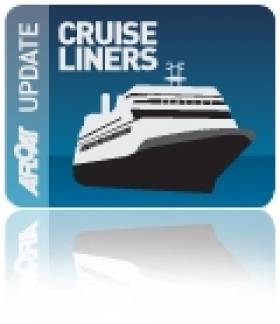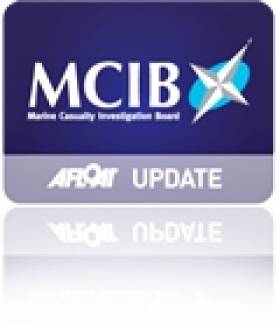Displaying items by tag: motor yacht
Bikini Registered Motoryacht Follows Cruiseship Out of Dublin
As for Cary Ali, she is a 87ft long was built in 2007 by Nordhavn to a design of Jeff Leishman. From her stern flew the flag of the Marshal Islands in the Pacific Ocean. Inside the four-decked vessel there is the main salon, a dining room, galley and three guest staterooms, and a master cabin (click HERE). In total eight people can be accommodated. In addition she has a jacuzzi, fly-bridge and is equipped with a tender and has crew of four.
She has a speed of 24-knots and is equipped with 50hp bow and stern thrusters. To read more about the luxurious motoryacht including facts and figures click HERE.
The Cary Ali had berthed at the 100-berth marina of the Poolbeg Yacht & Boat Club which caters lesiure craft up to 20 metres and is centrally located on the south side of Dublin Port. The facility has accommodated larger motoryachts over the years. Though even larger motoryachts such as Battered Bull, a Feadship 52m has berthed further upriver at Dublin City Moorings.
- motorboats
- Carlingford Lough
- Dublin Port
- Cruise Liners
- Ports and Shipping
- Lough foyle
- Poolbeg Marina
- motor yacht
- Marshall Islands
- Dublin City Moorings
- Cruise ships
- Greencastle Co.Donegal
- Greencastle Maritime Museum
- Hebridean Princess
- Caly Ali
- MY Caly Ali
- Charter motoryachts
- Motor boat news
- Lough Foyle Ferry Company
Quo Vadis Deaths Result of Misadventure, Says MCIB Report
Investigators have published their investigation report into the death of two yachtsmen off Inishboffin in October last year.
Donal McEllin, 63, and Ger Feeney, 56, died while attempting to return to their motor yacht Quo Vadis in the early hours of 10 October.
The inquiry by the Marine Casualty Investigation Board (MCIB) found that the pair had set off for the yacht - which was moored in Inisboffin Harbour - on a motor-driven inflatable tender after several hours socialising in Day's Pub on the island.
The report also found that they had declined an offer to be ferried back to the yacht.
A witness, Ian Day, recounted that he drove his jeep to the end of the pier and used his headlights to assure himself that the tender had reached the vessel. Though it had been agreed with both men that they would turn off the external lights on the vessel when they safely boarded, it was assumed that they had forgotten.
The bodies of both men were discovered the following morning. Mr. McEllin’s body was found lying on West Quarter Beach adjacent to where the vessel was moored, while Mr. Feeney’s body was found afloat, lying under the upturned tender. Mr. McEllin’s lifejacket had inflated but was entangled around his neck, indicating that the groin strap was not properly tied.
Based on the available evidence, the MCIB concluded that the deaths were the result of attemping a night-time transfer from a small inflatable boat to a larger vessel swinging on its mooring, combined with "possible tiredness and diminished human performance resulting from the effects of alcohol".
The full MCIB report is available for download below.





























































